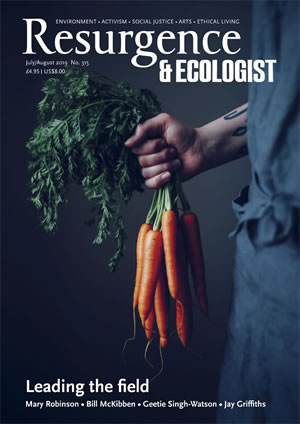Fighting to protect Nature in the UK often feels difficult. But our struggles pale into insignificance compared with the conservation challenges faced by Alex Dehgan when he embarked on trying to save snow leopards and set up Nature reserves in Afghanistan. Not only is Afghanistan a country with some of the most inaccessible regions in the world, but when Dehgan arrived there in 2007 it was still dangerous, suffering the consequences of decades of war, including unresolved civil conflict, depleted resources, minefields, a burgeoning opium trade, and resurgent warlords.
Afghanistan’s extreme situations yielded many extreme experiences. Once, Dehgan was alone in an isolated marsh area watching birds through a telescope when a man dressed in traditional robes approached him. “I’m a Talib,” he said. Dehgan hesitated, and then beckoned the man over: “He looked at me first warily and then, his curiosity getting the better of him, approached and peered through the eyepiece… Before long I was showing him how to type birds and their names. As we scanned the reeds I felt the surreality of the moment sink in. How had I found myself birdwatching with the Taliban?”
The Snow Leopard Project answers that question. Dehgan is clearly not someone to be daunted by challenging situations. Prior to Afghanistan he had already worked in many inhospitable areas, including Russia, Madagascar and Iraq. So when the Wildlife Conservation Society (funded by USAID) offered him the chance of helping create wildlife protection areas in Afghanistan, he jumped at it. Dehgan, who is an American of Iranian descent, clearly also empathised with the region’s human suffering, seeing this not just as a mission to protect the wildlife, but also as having humanitarian value. Eighty per cent of Afghans depend on natural resources. Dehgan believed that managing resources better for wildlife would also benefit food security and human health. Wildlife conservation also offered the war-torn society something precious. It could help boost national pride and identity.
Afghanistan certainly has an incredible natural history and resources worth saving. Better known as a crucial point on the Silk Road, the ancient trading route where the cultures of east and west met, it is also a point of geographical convergence between different biospheres. This means Afghanistan has many different ecological zones and many rare iconic species like the elusive snow leopard, the Asian bear, and the world’s largest wild sheep, named after Marco Polo, who described it in his diaries.
Dehgan’s main role was conducting surveys to establish species numbers. Consequently there are many stories of dangerous journeys, bureaucratic tangles, difficult locals, and technological logistics such as travelling in search of the ‘vampire’ deer in the almost impenetrable forests of Nuristan. Many of his anecdotes are revelatory about attitudes towards wildlife in the region, such as the discovery from a casual conversation with an air steward that Saudi Arabian sheikhs hired planes to bring over dozens of the rare and critically endangered saker falcons for a hunting festival in the Taliban-held desert. Their prey was the equally endangered houbara bustard.
I found the pressures on Afghan wildlife, such as loss of habitat and the prevalence of wildlife trafficking by the Chinese for traditional medicine, depressing to read about. Worse still was the culpability of the international humanitarian community and US and international military forces, who were the main clientele for fur traders. Dehgan left Afghanistan in 2007 as the security situation disintegrated, making it increasingly difficult to survey remote regions. He also became disillusioned with some of the aid work. But the book ends with reasons for optimism. After Dehgan left, the Wildlife Conservation Society remained active under the directorship of the conservationist Peter Zahler, and his wildlife surveys bore fruit. Afghanistan now has two major national parks, snow leopard habitat, and several protected areas. Most of the visitors are Afghans, who have begun to see in their wildlife a reason to feel proud of their nation.






